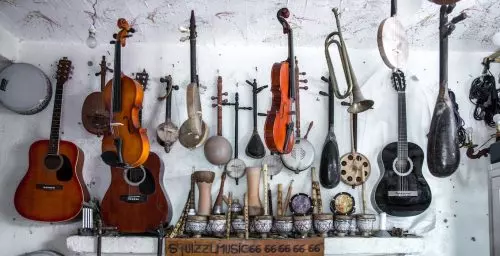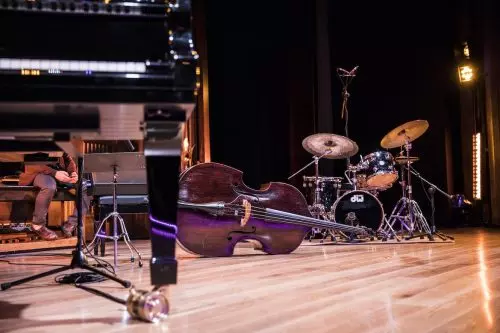Choosing the perfect beginner instrument is an exciting and important decision for anyone embarking on a musical journey. Whether it’s the guitar, piano, violin, or any other instrument, finding the right one can greatly influence a beginner’s motivation, progress, and overall enjoyment of learning music. In this article, we will explore four key factors to consider when selecting the perfect beginner instrument, helping aspiring musicians make an informed decision and set themselves up for success.

Assessing Personal Interests and Musical Goals
When choosing the perfect beginner instrument, it is essential to assess your personal interest and musical goals. The people at Musicion.com note that you should start by identifying the musical genre or style that resonates with you the most. Whether it’s classical, rock, jazz, or folk, understanding the type of music you are passionate about will guide you toward the right instrument. Each genre often has specific instruments associated with it, so consider the instruments commonly used in your preferred genre.
Additionally, take some time to clarify your musical goals. Are you looking to play for fun and personal enjoyment? Do you dream of joining a band and performing with others? Are you considering a career in music? Knowing your aspirations will help you choose an instrument that aligns with your long-term goals and provides the necessary foundation for your musical journey.
Budget and Affordability
Another crucial factor to consider when choosing a beginner instrument is your budget and affordability. Determine a reasonable budget that you are comfortable with and can allocate toward purchasing an instrument. It’s important to remember that as a beginner, you don’t necessarily need to invest in top-of-the-line, professional-grade instruments. There are plenty of excellent beginner instruments available at various price points.
Research the price range of instruments within your budget to get a sense of what is available to you. Compare prices from different brands and consider both new and used instruments, as used instruments can often provide excellent value for beginners.
Additionally, take into account any additional costs such as accessories (e.g., cases, straps), maintenance (e.g., strings, reeds), and potential lessons or instructional materials.
Playability and Comfort When selecting the perfect beginner instrument, it is important to prioritize playability and comfort. Take the opportunity to try out different instruments to assess how they feel and respond to your touch. Each instrument has its own unique physical demands and ergonomics, so it’s crucial to choose one that feels comfortable and natural for you to play.
Pay attention to factors such as the instrument’s size, weight, and the reach of the keys or strings.
Consider how it feels in your hands and whether you find it easy to produce sounds or play basic melodies. By finding an instrument that is comfortable and enjoyable to play, you will have a better experience learning and practicing music. Don’t hesitate to seek advice from music teachers or experienced musicians who can provide insights into which instruments are easier to learn and play for beginners.
Maintenance and Durability
Maintenance and durability are essential aspects to consider when choosing a beginner instrument. Each instrument has its own specific maintenance requirements, and it’s crucial to familiarize yourself with them before making a purchase. Some instruments may require regular tuning, string replacement, or leaning, while others may need periodic adjustments or reed replacements. Researching the maintenance practices and costs associated with different instruments will help you assess whether you have the time, resources, and commitment to properly care for the instrument.
Durability is also a vital consideration, especially for beginner instruments that are likely to experience a fair amount of wear and tear. Instruments made with high-quality materials and craftsmanship tend to be more durable and can withstand regular use. For example, a solid wood guitar or a brass instrument with a sturdy construction is likely to last longer and handle daily practice sessions better than instruments made from lower-quality materials. It’s
worth considering instruments with reputations for durability and longevity, as they will provide a reliable and long-lasting investment.
Furthermore, it’s important to think about the availability and cost of repairs and replacement parts for the instrument you choose. No matter how well you care for your instrument, there may come a time when it needs servicing or replacement parts. Before making a decision, research the instrument’s reputation for reliability and accessibility of repairs. Check if there are authorized repair technicians or reputable shops in your area that specialize in the instrument you are interested in.
Additionally, consider the cost and availability of replacement parts such as strings, reeds, pads, or valves. It can be frustrating and costly to have an instrument that requires repairs or replacement parts that are difficult to find or expensive.

By considering these key factors when choosing a beginner instrument, you can make a well-informed decision that aligns with your musical interests, budget, and long-term goals. Remember, selecting the right instrument is the first step towards an enjoyable and rewarding musical journey.

